Faculty Biographies
18–19 March 2022, Virtual Meeting
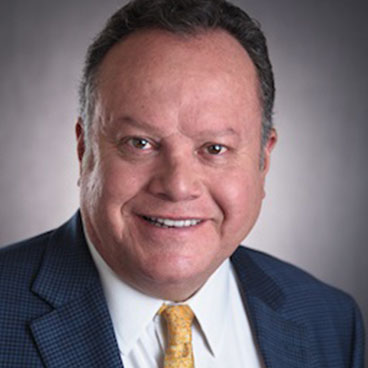
Rafael Fonseca, MD
Mayo Clinic, Arizona
Rafael Fonseca, MD, is the Chief Innovation Officer, Getz Family Professor of Cancer, Distinguished Mayo Investigator. He earned his MD at Universidad Anahuac, Mexico. He completed a residency in internal medicine at the University of Miami, FL, and a fellowship in hematology and medical oncology at Mayo Graduate School of Medicine, Rochester, MN. He was named a clinical investigator for the Damon Runyon Cancer Research Fund. He is a visiting healthcare fellow at the Goldwater Institute.
Dr Fonseca’s practice has focused on the diagnosis and treatment of plasma cell disorders and leading the multiple myeloma team in its effort to develop a better understanding of the disease and its impact on patients. In his laboratory, Dr Fonseca has led his team of researchers in concentrating on the genetic nature of the clonal cells of plasma cell disorders, myeloma bone disease, prognostic markers, and development of new therapies for the disease.
Throughout his training and career, Dr Fonseca has received numerous awards and honors, including the Damon Runyon-Walter Winchell Clinical Investigator Award, and the International Waldenström Macroglobulinemia Research Award. Most notably, he is a Mayo Clinic Distinguished Investigator, the highest academic distinction given to investigators at his institution. Dr Fonseca holds memberships and serves in positions for organizations such as the American Society of Clinical Oncology, American Society of Hematology, American Association for Cancer Research, and the International Myeloma Society. His research has been funded by the National Cancer Institute (R01, P01, SPORE), the Leukemia & Lymphoma Society, the Multiple Myeloma Research Fund, and the Damon Runyon Cancer Research Fund. Dr Fonseca serves as reviewer and in editorial capacities for medical publications including Blood, Lancet, Nature Medicine, Cancer Cell, Leukemia, and the New England Journal of Medicine, among others. He has given many national and international presentations as a visiting professor, and has authored numerous articles (over 300), book chapters, editorials, abstracts, and letters.
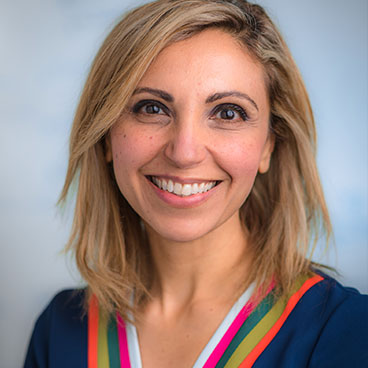
Irene Ghobrial, MD
Dana-Farber Cancer Institute
Dr Irene Ghobrial is currently a professor of medicine at Dana-Farber Cancer Institute (DFCI), Harvard Medical School, and the Lavine Family Chair for Preventative Cancer Therapies. She is also an associate member of the Broad Institute of the Massachusetts Institute of Technology and Harvard University. She is director of the clinical investigator research program at DFCI, director of translational research in the Department of Multiple Myeloma, director of the Center for Prevention of Progression, and co-leader of the Dana-Farber/Harvard Cancer Center lymphoma and myeloma program. Dr Ghobrial received her MD from Cairo University, Egypt. She completed a residency in internal medicine at Wayne State University, Detroit, MI, and then moved to the Mayo Clinic in Rochester, MN, to train as a hematology-oncology fellow.
Dr Ghobrial’s laboratory and clinical studies focus on identifying and developing effective therapeutic interventions for precursor conditions of myeloma (monoclonal gammopathy of undetermined significance and smoldering multiple myeloma). This can only be achieved by defining genomic and epigenomic markers that are associated with disease progression, microenvironmental changes that affect tumor progression to myeloma, and mechanisms of immune evasion in disease progression. The focus of her research is to identify novel biomarkers of disease progression and help develop potentially curative therapies in the pre-malignant phase that exploit the immune microenvironment in the bone marrow. She developed a large, patient-empowering observational study for these precursor conditions (the PCROWD study) and recruited over 3,000 patients. She is also the principal investigator of the first screening study for multiple myeloma in the US, the PROMISE study. This trial is currently screening 30,000 individuals at high risk of developing myeloma, including those of African American descent or those with first-degree relatives with myeloma.
Dr Ghobrial is a well-funded investigator who received continuous National Institutes of Health funding over the last 12 years and foundation collaborative grants, including the Leukemia & Lymphoma Society SCOR program and Stand Up To Cancer grants dream team. She has over 250 publications in many prestigious journals and has presented and led many national and international meetings on myeloma. She is the recipient of the Robert A. Kyle Award for Waldenström’s macroglobulinemia, the Ken Anderson Young Investigator Award, and the Mentor of the Year Award at DFCI.
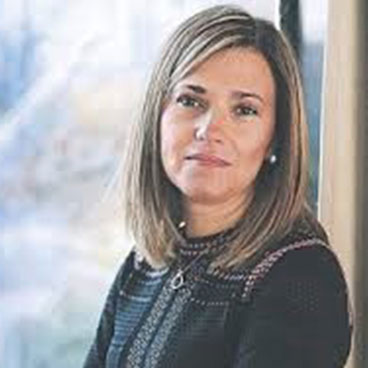
María-Victoria Mateos, MD, PhD
University of Salamanca
María-Victoria Mateos, MD, PhD, is a consultant physician in the Hematology Department and associate professor of medicine at the University of Salamanca, Spain. She is director of the myeloma program and coordinates the clinical trials unit in Salamanca’s University Hospital Hematology Department. She received her medical degree from the University of Valladolid in Spain, and completed a residency in hematology at the University Hospital of Salamanca, where she also completed a doctoral degree.
Dr Mateos serves as coordinator of the Spanish Myeloma Group, with direct involvement in the design and development of clinical trials. She has coordinated many clinical studies, especially in the smoldering myeloma setting, and these trials have profoundly influenced current options for the management of these patient populations.
Dr Mateos is a member of the International Myeloma Working Group, the International Myeloma Society (IMS), the European Hematology Association (EHA), and the American Society of Hematology (ASH). Among her invited presentations, she has contributed to the educational sessions of EHA 2012, ASH 2013, the American Society of Clinical Oncology (ASCO) 2015, EHA 2016, and ASCO and ASH 2017. She served on the ASH Scientific Committee on plasma cell diseases from 2015–2019 and on EHA’s Scientific Program Committee and Advisory Board from 2013–2020, and was chair of the Scientific Program Committee in 2019. She was a councilor on the EHA Board from 2015–2020, a member of the Steering Committee for the Society of Hematologic Oncology, a member of the IMS board, and a member of the European School of Haematology Scientific Committee. She received the Brian G.M. Durie Award in 2019 recognizing excellence in myeloma research. Dr Mateos has published over 250 original papers in international journals.
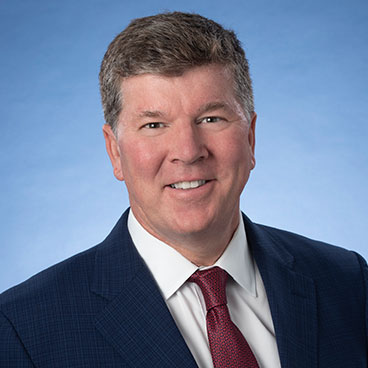
Keith Stewart, MBChB, MBA
University of Toronto, University Health Network, Mayo Clinic
Dr Keith Stewart is Vice President, Cancer, at University Health Network in Toronto, Canada, and Director of the Princess Margaret Cancer Program. He is regional vice-president of Toronto Central South Regional Cancer Program, Ontario Health (Cancer Care Ontario), and holds the Richard H. Clark Chair in Cancer Medicine. He has served in several healthcare leadership roles across both research and clinical practice in Toronto and at the Mayo Clinic, where most recently he was director of the Center for Individualized Medicine.
Dr Stewart earned his medical degree at Aberdeen University Medical School, UK, and an MBA degree at the Ivey Business School, University of Western Ontario. He completed an internship at the Glasgow Royal Infirmary, UK; a residency in internal medicine at Queens University, Kingston, ON; a fellowship in hematology at the University of Toronto; and a fellowship in research at New England Medical Center in Boston.
Dr Stewart’s research focuses on the biology, genomics, and individualized treatment of multiple myeloma. He has over 30 years of sustained national funding for a laboratory research program in genomics and biology of myeloma, and has led numerous clinical trials of novel therapeutics for this disease from first-in-man to large practice-changing studies. A frequently invited speaker, Dr Stewart gives presentations on his research both domestically and internationally, and has authored over 350 journal articles, abstracts, and other written publications. He has served on the advisory and medical or scientific boards of many private and public institutions, including currently as a non-executive board member of Genomics England.
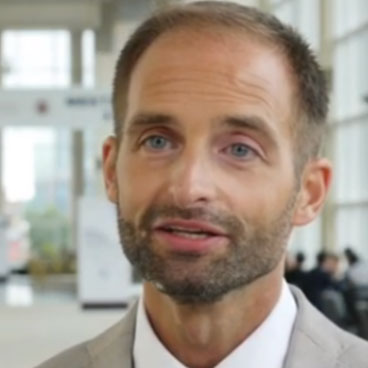
Bruno Paiva, PharmD, PhD
University of Navarra, Spain
Dr Bruno Paiva is a research fellow of the Departments of Hematology and Immunology at the Clinica Universidad de Navarra and Centro de Investigaciones Medicas Aplicadas (CIMA), Pamplona, Spain. He is also the director of the Flow Cytometry Core, and scientific coordinator of CIMA LAB Diagnostics, the laboratory diagnostic core of the University of Navarra.
Dr Paiva’s main area of expertise is the multidimensional flow cytometry analysis of hematologic malignancies. His research focuses on improving the differential diagnosis, risk stratification, and monitoring of patients with monoclonal gammopathies, smoldering and symptomatic multiple myeloma, Waldenström macroglobulinemia, and amyloidosis. He has authored or co-authored over 150 publications in peer-reviewed journals and has been recognized with numerous awards.
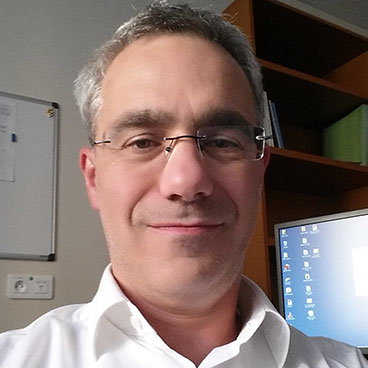
Xavier Leleu, MD, PhD
Poitiers University Hospital, CHU, France
Prof Xavier Leleu is head of the Department of Hematology at Hôpital La Milétrie, part of the Poitiers University Hospital, France. He received his medical degree at the University of Bordeaux. Later, he completed specialties in public health care and statistics at the University of Paris, and studied in hematology at the Lille University School of Medicine. Prof Leleu has trained in myeloma since 1995 with Prof T. Facon as his mentor. He was an instructor, then associate professor in charge of the myeloma clinic of the Lille academic hospital (2002–2015). He received a master’s degree in cellular biology at Lille University School of Medicine in 2001 and completed his PhD in 2007, having done his research at Dana-Farber Cancer Institute, Boston, MA. Prof Leleu’s main topic of research during his studies was the preclinical development of novel agents in Waldenström macroglobulinemia and multiple myeloma.
Prof Leleu’s current research interest is drug development in myeloma, most recently with a special focus on immunotherapy. He collaborates actively with Inserm CIC U1402 THOR and Inserm U1082 IRATI on the role of the immune microenvironment in myeloma.
Prof Leleu is a member of many scientific societies, including the American Society of Hematology, the European Hematology Association, the American Society of Clinical Oncology, and the International Myeloma Working Group. He is currently the treasurer of the Intergroupe Francophone du Myélome. Prof Leleu has published widely in the field of hematology, particularly on gammopathies. He is also on the editorial board of several noted journals in the field of hematology.
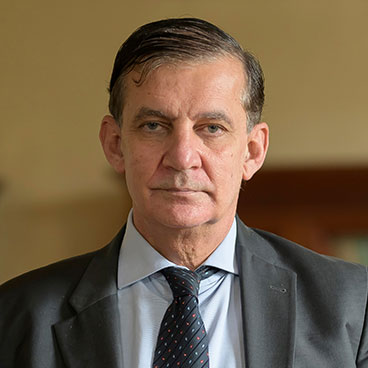
Meletios A. Dimopoulos, MD
National and Kapodistrian University of Athens School of Medicine, Greece
Dr Meletios A. Dimopoulos is professor and chairman of the Department of Clinical Therapeutics at the National and Kapodistrian University of Athens School of Medicine, Greece. He was vice dean for the academic years 2007–2011 and dean for the academic years 2011–2015. He obtained his medical degree from the National and Kapodistrian University of Athens, completed a residency in internal medicine at the Royal Victoria Hospital, McGill University, Montreal, Canada, and a fellowship in hematology and oncology at the University of Texas MD Anderson Cancer Center, Houston.
Dr Dimopoulos serves on the scientific advisory boards of the International Myeloma Foundation and of the International Waldenstrom’s Macroglobulinemia Foundation. He is also a member of the board of the European Myeloma Network. Dr Dimopoulos organized the XI International Myeloma Workshop and the Fourth International Workshop on Waldenstrom’s Macroglobulinemia. In March 2013, he was elected as a member of the board of the International Myeloma Society. Currently he is the chairman of the Greek Myeloma Study Group and the Balkan Myeloma Study Group, serves as chairman for the board of the Foundation of “Julia and Alexander N. Diomedes Botanic Garden,” and is a member of the board of the National Greek Committee for the United Nations Educational, Scientific and Cultural Organization.
Dr Dimopoulos is a member of numerous scientific societies and has authored more than 1200 publications in peer-reviewed journals, as well as numerous abstracts and several textbook chapters primarily focusing on plasma cell dyscrasias and genitourinary and gynecologic cancers. He is a reviewer for several journals, including New England Journal of Medicine, Blood, Journal of Clinical Oncology, Haematologica, Leukemia, Cancer, European Journal of Haematology, and Leukemia & Lymphoma. Dr Dimopoulos is an associate editor of Current Hematologic Malignancy Reports and is an editorial board member of the Journal of Clinical Oncology, Haematologica, Leukemia & Lymphoma, Clinical Lymphoma, Myeloma and Leukemia, Expert Review of Hematology, and Blood Advances.
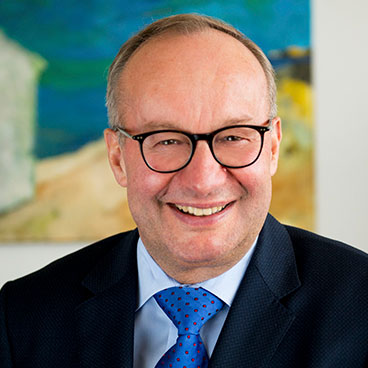
Hermann Einsele, MD, FRCP
University Hospital Würzburg, Germany
Prof Hermann Einsele is full professor of internal medicine and has been director of the Department of Internal Medicine II at the University Hospital Würzburg, Germany, since 2004. Following his medical training at the Universities of Tübingen in Manchester and London, he became a research fellow in the Department of Haematology, Oncology, Rheumatology, and Immunology at the University of Tübingen, Germany. Prof Einsele was board certified in internal medicine in 1991 and in hematology and oncology in 1996. In 1999 he was promoted as an associate professor. He was visiting professor at City of Hope, Duarte, CA, and the Fred Hutchinson Cancer Research Center, Seattle, WA. Prof Einsele is also vice dean of the Faculty of Medicine and vice president of the University of Würzburg.
Prof Einsele is an expert in the field of multiple myeloma with a focus on chimeric antigen T cells, bispecific antibodies, adoptive immunotherapy, and stem cell transplantation. In 2003, he received the van Bekkum Award, the highest annual European award for research in the field of stem cell transplantation. In 2011, he was elected as an honorary fellow of the Royal College of Pathologists and in 2012 as the Nobel Lecturer for Stem Cell Biology and Transplantation at the Nobel Forum Karolinska Institute. Since 2014, he has been a member of the Academy of Sciences and Literature, Mainz, and 2017–2021 recognized as an Institute for Scientific Information “Highly Cited Researcher” in the category of “Clinical Medicine.” Prof Einsele is the chair of the scientific working group on immunotherapy for hematologic malignancies of the European Hematology Association and currently serves as executive chairman for the German Society of Hematology and Oncology.





